:-: Women's marches kick off with focus on 2020 and progressive policies :-:
- Get link
- X
- Other Apps
arch »
International Edition+
:-: Women's marches kick off with focus on 2020 and progressive policies :-:
By Jason Hanna, CNN
Updated 1802 GMT (0202 HKT) January 19, 2019
(CNN)Thousands of demonstrators are gathering Saturday for the Women's March in Washington and related rallies across the country, with many looking to channel two years of momentum and common cause against President Donald Trump into progressive policies.
The marches come as allegations of anti-Semitismagainst the leaders of the national Women's March Inc. and the main Washington march -- which those leaders have denied -- pushed some rally organizers in other cities to disassociate themselves from that group.
But for the third straight year, marchers were flocking to rallies in Washington's Freedom Plaza, New York and elsewhere Saturday. Some are affiliated with Women's March Inc. and others aren't.
Before the morning's rally in Los Angeles, Yanti Palleschi sat at a table and joined others who were writing messages on placards.
"I come every year. I'm proud of the work (that) women have done in the last election, but we need more powerful women," said Palleschi of Sherman Oaks, California, and a member of a nonprofit for women.
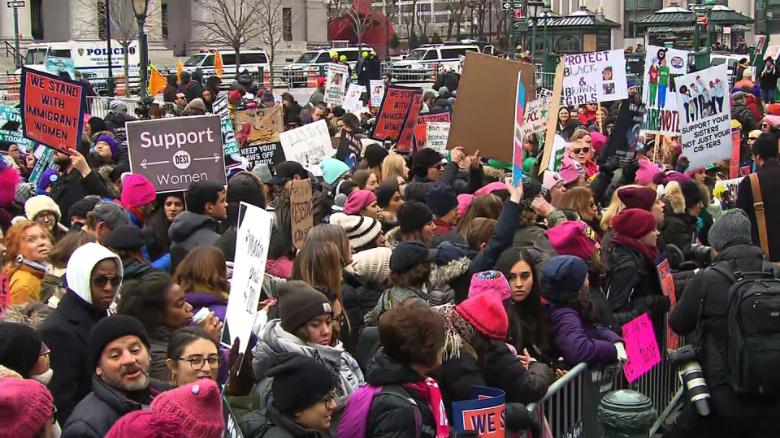
Demonstrators gather Saturday at New York's Foley Square for a "Women's Unity Rally."
Agitating for progressive laws
These marches stem from the ones that started in January 2017 as a display of resistance to Trump's election. In 2018, the movement shifted to focus on midterm elections.
This year, organizers say, is about not only commemorating victories such as unprecedented wins for the Democratic Party by women of color in the midterms, but also agitating for progressive laws and positions they say will benefit women across race, class, sexual orientation and other identities.
That includes pushing for a policy document they call the "Women's Agenda," addressing issues including immigrant rights, violence against women, civil rights and liberties, and climate justice, among others.
"The agenda is specifically focused on legislative and policy actions that are achievable by 2020," Women's March Chief Operating Officer Rachel Carmona said.
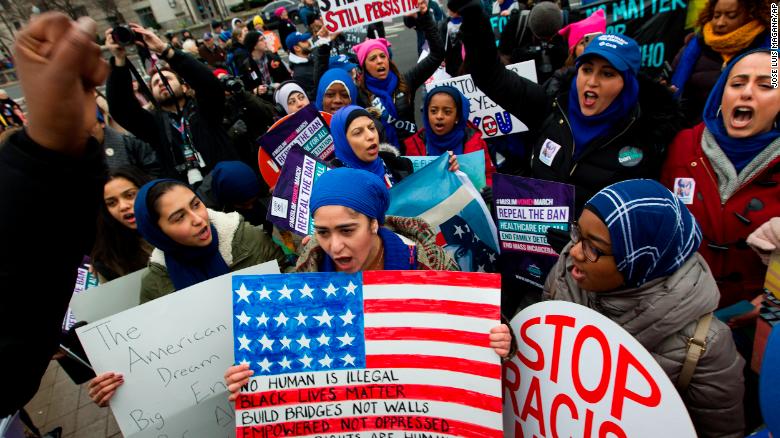
A group holds up signs Saturday at Washington's Freedom Plaza.
Jessica González-Rojas, executive director at the National Latina Institute for Reproductive Health, described the agenda as a policy tool that organizers in different cities can use to take on issues that matter to their communities.
What makes it unique is how it takes typically gender-neutral issues such as immigration and offers policy solutions that specifically benefit women and families, she said.
"It's about looking at different identities among women and femmes and the policy solutions to address attacks on those identities," she said.
In New York, demonstrators gathered for at least two separate events, including one at Foley Square for a "Women's Unit Rally." Organizers there said they aim "to demand equal justice for black women, immigrant women, women of color, and gender nonconforming people."
Scheduled speakers were to include New York City first lady Chirlane McCray, women's rights activist Gloria Steinem and US Rep. Alexandria Ocasio-Cortez, the 29-year-old New York freshman whose following among progressives nationwide has made her one of the most high-profile Democrats in the House.
Ocasio-Cortez, the youngest woman ever elected to Congress, was at a separate rally near Central Park earlier Saturday morning. She said the two New York events shared the same message.
"All of these women are coming together in solidarity with each other, to support each other and to make sure that every single voice is amplified, protected and advanced in the United States of America," she told CNN.
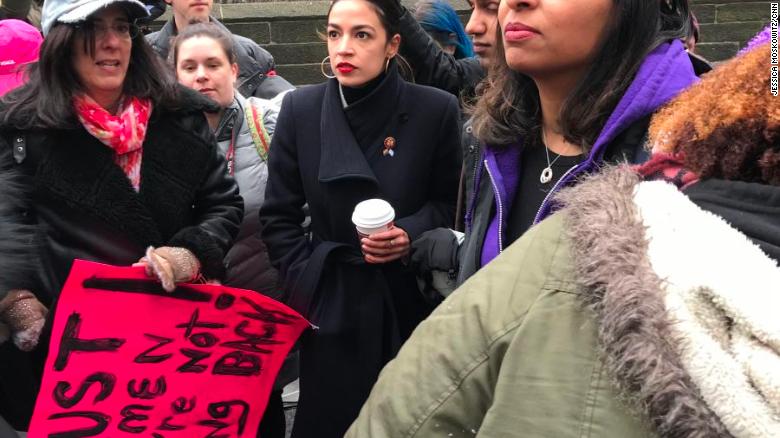
US Rep. Alexandria Ocasio-Cortez, center, attends a march event near Central Park in New York.
Concerns about diversity, inclusion and allegations of bigotry
The marches come as concerns about diversity and inclusion have rattled groups across the country. Allegations of bigotry against leaders of Women's March Inc., the national group formed by organizers of the 2017 march, threaten to overshadow the work of grassroots activists.
One of the national group's leaders was been criticized in particular for her association with the Nation of Islam leader Louis Farrakhan. Farrakhan, who has led the black nationalist group since 1977, is known for hyperbolic hate speech aimed at the Jewish community, and made remarks such as "the powerful Jews are my enemy" in February.
The group has released numerous statements condemning anti-Semitism and vowing to learn from its missteps through training and discussions -- pledges that people associated with the group say are underway.
In Washington, marcher Carmella Ormando told CNN the controversy gave her no reservations about participating.
"Because nothing is perfect," the Arlington, Virginia, resident said, when asked why. "Because they have worked to solve some of their problems and use it as an opportunity to make some changes.
"And because we need to support each other, because the cause is much bigger."
She and Marian Klymkowsky, also of Arlington, said they marched in 2017. Klymkowsky said they were back because they're dissatisfied with the President.
"He's not uniting the country. He has pat solutions for problems of his own making," she said. "Why wouldn't you be out here marching?"
CNN's Emanuella Grinberg, Madeline Holcombe, Stephanie Becker, Dakin Andone, Meg Wagner, Greg Clary and Jessica Dean contributed to this report.
- Get link
- X
- Other Apps

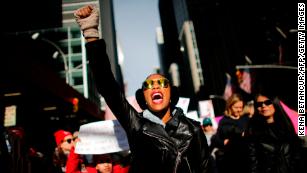
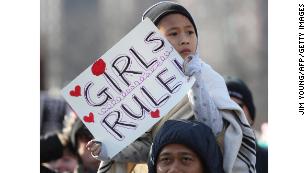
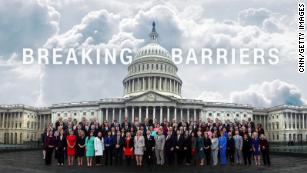
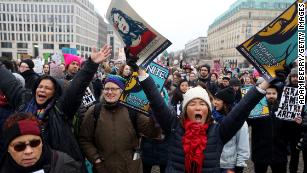

Comments
Post a Comment